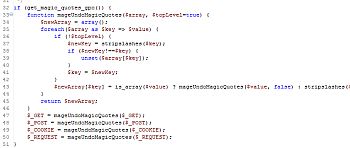Magento: Save admin name to order_status change using an Observer

config.xml:
<adminhtml> <events> <sales_order_status_history_save_before> <observers> <module_status_history_save_before> <class>module/observer</class> <method>addUserNameBeforeComment</method> </module_status_history_save_before> </observers> </sales_order_status_history_save_before> </events> </adminhtml>
Observer.php:
public function addUserNameBeforeComment($observer)
{
$data = '<strong>' . Mage::getSingleton('admin/session')->getUser()->getFirstname() . ' ' . Mage::getSingleton('admin/session')->getUser()->getLastname() . ': </strong>';
$history = Mage::app()->getRequest()->getPost('history');
if ($history && isset($history['comment']) && $history['comment'] != '') {
$history['comment'] = $data . $history['comment'];
Mage::app()->getRequest()->setPost('history', $history);
}
}
Please share this article von facebook & google plus or where you want, thank you!


